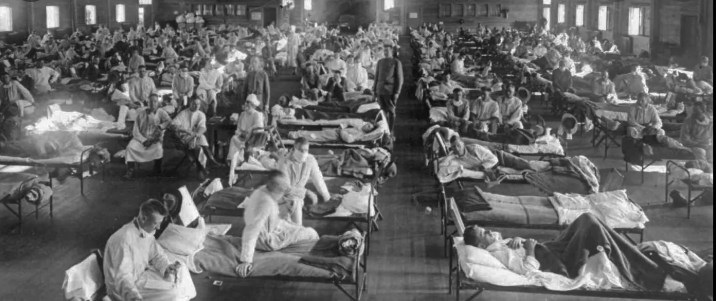
Turning and turning in the widening gyre
The falcon cannot hear the falconer;
Things fall apart; the centre cannot hold;
Mere anarchy is loosed upon the world,
The blood-dimmed tide is loosed, and everywhere
The ceremony of innocence is drowned;
The best lack all conviction, while the worst
Are full of passionate intensity.
— The Second Coming, W.B. Yeats
Yeats published this poem almost century ago, in November of 1920. It reflects the immediate past in the terrors of the Great War, but less than 20 years later, the world plunged into a still more ghastly conflict. In addition to our forebearers’ collective efforts to kill each other, this period witnessed a terrible pandemic, the Spanish influenza, which infected 27 percent of the world’s population and killed tens of millions worldwide between 1918 and 1920.
One hundred years later, the Covid-19 pandemic challenges our health system, schools and society at large. Difficult days, weeks and months lie ahead.
A group of concerned physicians are calling the current pandemic a Pearl Harbor moment. Many states have called for school closures as a mitigation strategy. I’ve read a great deal of debate about whether these closures are wise, because bad things happen to students and families when schools are closed, and circumstances may vary across states. Children seem resistant to Covid-19, whereas the fatality rate among the elderly appears alarmingly high. It isn’t hard to imagine asymptomatic but infected children staying with their grandparents and…
Nevertheless, severe cases of Covid-19 (a sizeable minority of total cases) reportedly require weeks of hospitalization on ventilation for patients to survive. We only have so many ventilators, so many hospital beds, so many surgical masks. Social isolation, cancelling large social events, closing schools, etc., constitutes an effort to slow a geometric infection rate and buy time.
For those who suspect these concerns are overblown, note that Italian doctors have been forced by harsh circumstances to ration ventilators by age just a few weeks after the discovery of the first infection. Buying time to ramp up the production of needed equipment and supplies will be enormously disruptive, but it may also represent the least bad option.
The Florida Department of Education has launched an emergency response page for tracking school closures. Keep an eye on it. In the meantime, a great many families have begun a chaotic pickup game of homeschooling. This pandemic is not to be underestimated, but neither is human ingenuity. The first great disruption of the 2020s has arrived, but here’s to hoping that the centre can hold.


